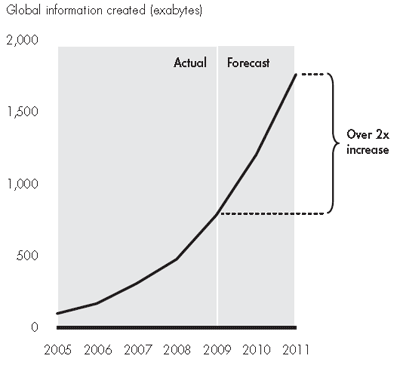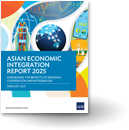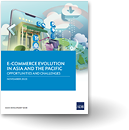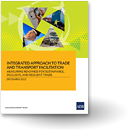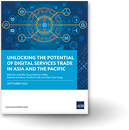The personal data economy: What trade barriers impede the cross-border flow of personal data?
Personal data is "digital data created by and about people". This can take various forms, such as the data more traditionally collected by public and private service providers, including information on a person's identity, age, gender, place of birth, next of kin etc. Today however, personal data also encompasses much more detailed and (some would say) intrusive information, such as our geographic location at a given time, the people we interact with, our profiles at online social networks, our recent purchases, travel plans, dining experiences, web searches, internet browsing histories, "likes", tweets, emails and much more.
This blog article discusses some of the trade barriers effecting this newly emerging asset class, particularly as governments move to regulate this sector of economic activity and how these efforts collide with the needs of other stakeholders--especially commercial operators--to be able to establish and operate international business models that are predicated on the free flow of private data across national borders.
It is a common adage that knowledge is power, and in the context of the rapidly growing personal data economy, it is probably equally correct to infer that knowledge is also wealth, since information on peoples' personal preferences, likes, dislikes and habits has its own intrinsic value.
Because many of us spend so much time online, we are familiar with many of the larger companies that dominate this economic space, entities like Google, Facebook and Twitter are well known for collecting and commercializing information from our online activities.
The amount of data in the world is growing exponentially:
Source: IDC, CapitalIQ, annual reports, taken from Bain & Company Industry Brief: "Using Data as a Hidden Asset"
Many smaller and less well-known players also operate on this market, like Expedia (an online travel website), Yelp (an online shopping and dining guide with recommendations from users), or Foursquare, (a smart-phone application and geospatial locator that allows people to check in to businesses and places and thus meet up with other similarly-connected friends in the real world and in real time).
But even these players are likely to just represent the tip of the iceberg of this newly emerging area of economic activity, with thousands of companies, big and small, mining, extrapolating and exploiting the information from our online habits and musings, as well as what these habits say about us for the commercial benefit of themselves or their clients.
In terms of the international or cross-border activities of these firms, several legal and/or regulatory constraints exist, which effectively constitute market access barriers, although not in the traditional sense of tariffs, quotas or other border measures.
The first of these are arguably data privacy laws, which in many cases explicitly prohibit personal data from being transferred across borders, unless the recipient country has equal or better data protection legislation in force. Some degree of international regulatory cooperation is already underway to minimize the incidence of privacy laws as trade barriers, such as the Safe Harbor initiative between the EU, the US and Switzerland, or APEC's Cross-border Data Privacy Initiative, but we are really just at the start of these efforts.
Another obstacle to the cross-border flow of data and its commercial use are internet restrictions or censorship regimes which effectively block many websites or applications from operating on the territory of the government in question. Facebook, Twitter, YouTube and other social media and sharing website are those most commonly targeted by various governments for bans or restrictions on user accessibility, out of a range of policy concerns.
Although there is a small but growing body of international rules to address this particular set of trade barriers, a comprehensive approach to this will probably have to await the completion of the ongoing Trans Pacific Partnership negotiations, where this issue has figured strongly in negotiating proposals from the United States.
Another trade barrier affecting the personal data economy is constituted by overly restrictive rules on secondary liability for copyright, which can effectively prohibit a search engine like, say, Google, from showing a copyrighted image of a product or quoting lines from a copyrighted book as part of a search result.
The same occurs when a country has not legislated exemptions on copyright protection for so-called fair use (i.e. criticism, commentary, news reporting, or education). We are still some way off from globally agreed rules on fair use, but again, the TPP is slated to establish a legal framework that will undoubtedly pave the way for similar rules at the multilateral level.
In sum, the cross border flow of this new asset class is still something that international policy makers and the drafters of trade rules are grappling with, but for now, solutions seem to be emerging in piece-meal fashion, in different for a for regional economic integration or international regulatory cooperation.
